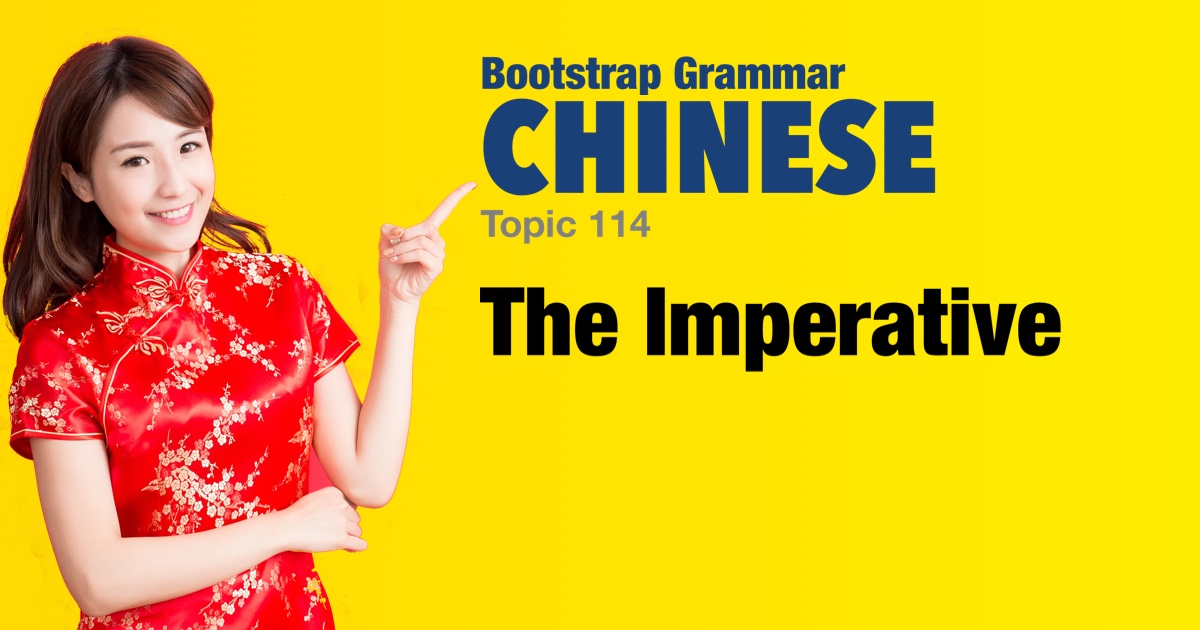Chinese grammar - The Imperative |
|||
|
|||
The 'imperative' aspect is used to give commands, make requests, or offer suggestions. The imperative in Chinese is formed primarily by using the verb directly. It can be very direct and sound rude but can be softened using: • 请 (qǐng) to say 'please'. • 一下 (yíxià) to soften the imperative. It is like adding 'a moment' or 'a bit'. • 吧 (ba) to make the phrase a suggestion. |
| Examples: | |
|
坐下。
zuò xià. Sit down. |
|
|
听!
tīng! Listen! |
|
|
快点。
kuài diǎn. Hurry up.
|
|
|
请坐。
qǐng zuò. Please sit. |
|
|
请快点。
qǐng kuài diǎn. Please hurry up. |
|
|
看一下。
kàn yíxià. Have a look./Take a look.
|
|
|
等一下。
děng yíxià. Wait a moment. |
|
|
试一下。
shì yíxià. Try (it). |
|
|
请试一下。
qǐng shì yíxià. Please try (it). |
|
|
我们走吧。
wǒmen zǒu ba. Let's go.
|
|
|
吃吧。
chī ba. (How about you) eat up. |
|
|
休息吧。
xiūxi ba. (Let's) take a rest. |
|
|
我们走吧。
wǒmen zǒu ba. Let's (take a) walk. |
|
 |
|



